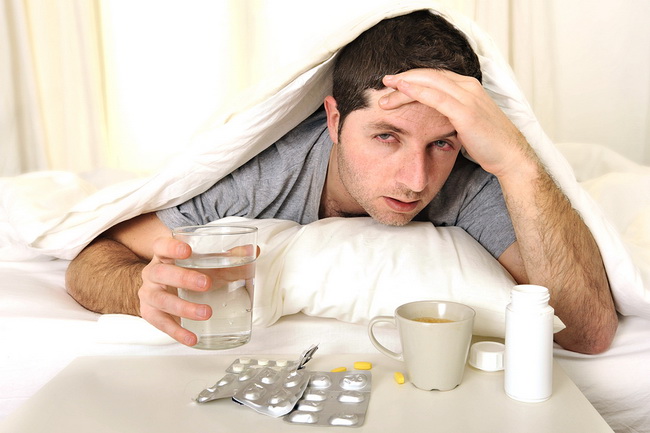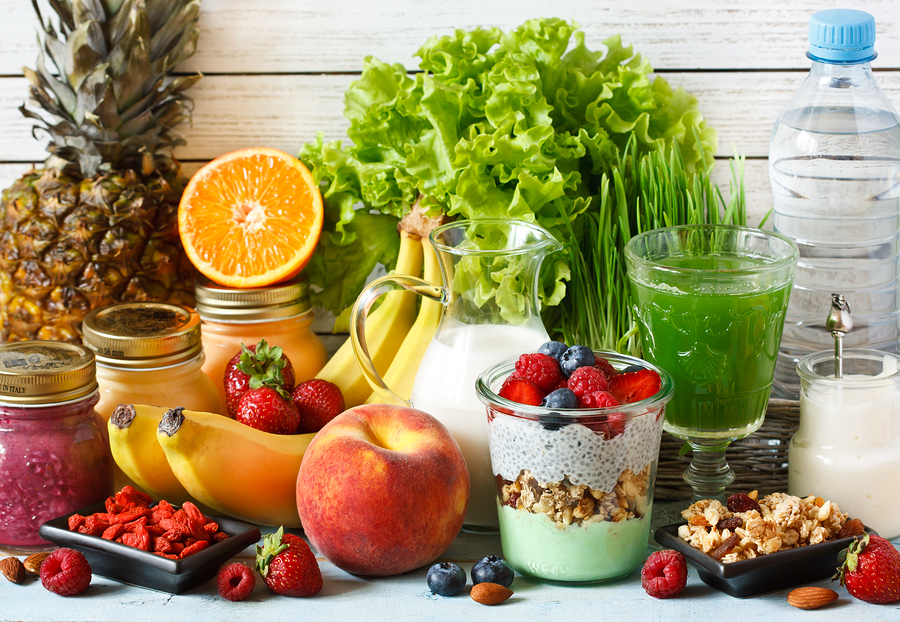- Make It Yourself Lavender Heart-Shaped Bath Bombs!
- 20 Things You Never Knew About “Down There”
- 12 Best Foods For Those Suffering From Arthritis Pain
- 12 Personal Hygiene Mistakes Almost Everyone Makes (Mom Never Told You About #4!)
- 15 Medicinal Plants And Herbs From The Cherokee People
- 12 Mind-Blowing Benefits Of Drinking Coconut Water During Pregnancy
- 12 Outstanding Winter Foods That Won’t Fatten You Up Like A Christmas Turkey
Natural Hangover Cures & Prevention!

Photo credit: bigstock
Most people enjoy a good night out on the town. Drinking alcohol has been a popular social activity since the days of ancient Egypt. There are some historians who believe the harvesting of grains to make beer, and not food, was the reason humans abandoned a hunter-gatherer lifestyle and began working the land! Over the millennia, many types of alcoholic beverage have been developed from a variety of sources. But regardless of whether you’re a beer, wine or liquor drinker, all alcoholic beverages, in sufficient quantities, will eventually have the same effect on your body: you will get drunk, and you will suffer a hangover the next day. The term “hangover” refers to the variety of unpleasant physical symptoms a person can experience after consuming alcohol in large quantities. These symptoms include headache, nausea, dizziness, confusion, irritability, dehydration and exhaustion, often all at the same time. It can often take an entire day to fully recover from a severe hangover. Most people have experienced a hangover at least once in their life, and for many, one severe hangover is enough to make them swear off alcohol altogether. But given how prevalent drinking alcohol is in most cultures, most of us will drink again. What steps can be taken to reduce one’s chances of getting a hangover, and, if this doesn’t work, help one recover from it as fast as possible? This article will explain how eating certain types of foods can help reduce the severity and duration of a hangover.
What exactly does alcohol do to your body, and why does it produce a hangover? You’ve probably noticed that after a certain point during a night out, you start having to go to the bathroom more frequently than normal. This is because drinking alcohol causes your body to produce more urine than it normally would. This speeds up the process of dehydration, resulting in headaches and thirst the next day. Alcohol can irritate the lining of your stomach and cause it to produce more acid than usual, which can contribute to feelings of nausea. Alcohol has inflammatory properties, and it also causes blood sugar levels in the body to drop, contributing to the weakness and fatigue one feels the next day. Finally, alcohol does make you sleepy, but it suppresses REM (rapid eye movement) sleep, during which the brain recuperates. This contributes to the groggy, foggy feeling you get during a hangover. A hangover does not occur 100% of the time, but it’s safe assumption it will occur if you are not following some basic preventative tips. The simplest precaution you can take is to simply not drink so much. There is no clear rule for how much is too much, because everyone’s body is different. Generally speaking, the more body mass a person has, the more alcohol is required to produce intoxication and a subsequent hangover. From experience, you will gain a sense of how much alcohol your body can tolerate. As a very general rule, it takes the body about 1 hour to metabolize the alcohol from one 12oz beer, 1.5oz shot of liquor, or one glass of wine. It is also important to stay hydrated. Drinking water in between alcoholic beverages can reduce the likelihood of a hangover. Drinking alcohol on an empty stomach also causes its effects to be more pronounced. Eating food will help provide nutrients to the body to lessen the severity of the hangover.
Continue to Page 2

Photo credit: bigstock.com
Food For Hangovers
Eating the following foods before drinking will help reduce your chances of getting a hangover. If it’s too late and you already have one, eating these items will also speed up your recovery.
1. Fruits And Vegetables
These in general are an excellent way to rehydrate your body and brain and provide plenty of vitamins and minerals to help your body recover from the hangover more quickly. The most efficient way is to drink a smoothie or shake made with a blend of fresh fruits and vegetables.
2. Bananas
Some fruits in particular are very good for alleviating hangovers, such as bananas, which are a good source of magnesium and potassium. These two minerals help replenish your body and brain with nutrients it is deprived of by alcohol. (Alternatively, avocados are also an excellent source of potassium).
3. Eggs
Many people recommend of big greasy breakfast of bacon and eggs for a hangover. While this may not sound very scientific, the truth is they are on to something. Breakfast meats and eggs both have protein, which will fill you up and help reduce upset stomach symptoms. Eggs, in particular, are good for hangovers due to the iron, omega-3 fats and amino acids they contain. Eggs also offer B vitamins, as well as a special compound associated with this family of vitamins called choline, which helps support brain health and neurotransmission. For this reason, someone who is hungover might experience a boost in mood after eating eggs.
4. Pickle Juice
This last one might seem weird, but try to keep an open mind. Drinking a small amount of pickle juice before going to bed can actually help prevent a hangover. The salty and vinegary liquid that pickles are preserved in has the unique property of helping the body store more water. If your body is more hydrated, it will lessen the severity of the hangover, and perhaps prevent it entirely. Try drinking ¼ cup of pickle juice before bed after a night of drinking, and see if it doesn’t help you have a much better morning.
READ ALSO: A Wine Without the Hangover: Should You Drink It?
Keep these simple rules in mind and you’ll be able to enjoy alcohol without paying for it the next day. As always, drink responsibly.
References:
































